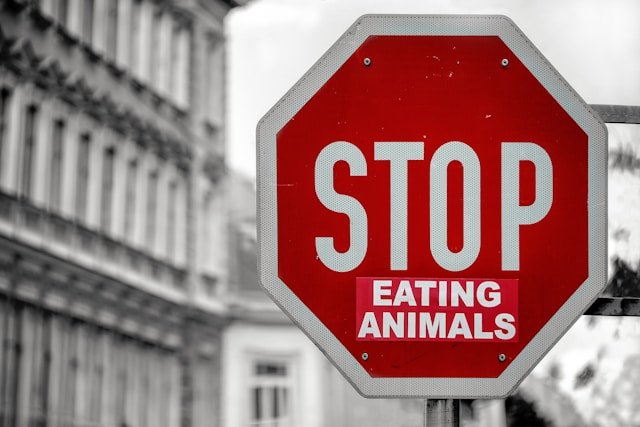To get a good understanding of being a vegetarian, vegetarian food, and cooking, it will help to learn about the origins of Vegetarianism. Vegetarianism can be traced back to ancient Egyptian society, where many religious sects abstained from eating meat or wearing clothing that was made from animal skins do to their beliefs in reincarnation.
The practice could also be found in Ancient Greece. Most notably, the famed scholar Pythagoras, known for his contributions in the field of mathematics, believed that being a vegetarian was an essential part of being a good human and would help lead to a peaceful existence. The idea of being a vegetarian was hotly debated by the Greeks throughout their civilization. This was one idea that the Romans did not share with the Greeks. Romans saw animals as a source of food and entertainment for the masses.
Vegetarianism in Religion
Adhering to a vegetarian diet is central to many religions. Buddhism shows kindness to all living things and its believers hold many animals to be scared for what they provide to humans, whether it is milk or as work animals to help plough fields.
Followers of Christianity had different views when it came to being a vegetarian. Christians believe that humans reign over all other living things on Earth, meaning that they believe that animals are here for their use, whether that means as beasts of burden or as a food source. However, that does not mean that all Christians are carnivores. Throughout history, different sects of Christians have broken with the mainstream beliefs and preached a vegetarian lifestyle.

Vegetarianism played a key role for Christians in Eastern Europe; among these groups were the Bogomils that rose up in the 900’s in what is now modern day Bulgaria. The Bogomils were seen as heretics because they spoke out against what they saw as the excesses of monasteries and the Eastern Orthodox Church; they rejected the physical world and forswore the consumption of eggs, meat, and cheese that led them to lead a vegetarian lifestyle.
Hinduism
While not all Hindu’s practice vegetarianism, a substantial portion of the followers of the religion, up to 35 percent, adhere to a vegetarian lifestyle. Those that live as vegetarians believe that the idea of non-violence applies to animals and that by avoiding the slaughter of animals they will not bring bad karma upon their family.
The influence of vegetarianism on the Hindu religion came from its predecessor Brahmanism, in which violence against animals was strictly controlled, with its scriptures only allowing the slaughter of animals for religious sacrifice. In Addition, the Brahmanism views are also expressed in the Hindu law book the Dharmaśāstra, which denounced the slaughter of animals and the consumption of meat unless it was performed in a proper religious sacrifice performed by priests. Today, the slaughter of animals based on these principles has almost come to an end.
Other Religions
Other major religions throughout the world to include Judaism, Christianity, and Islam have followers that adhere to a vegetarian diet, but the religions do not have a strict policy concerning the consumption of animals.
However, when it comes to Judaism and Islam, followers of these religions will not consume meat unless it has been slaughtered through the traditional halal method for Muslims and kosher method for followers of Judaism. While both of these religions allow their followers to eat meat that has been prepared in the proper manner, they both avoid eating pork, and meat from carnivorous animals to include birds of prey.
Photo by Elina Sazonova



